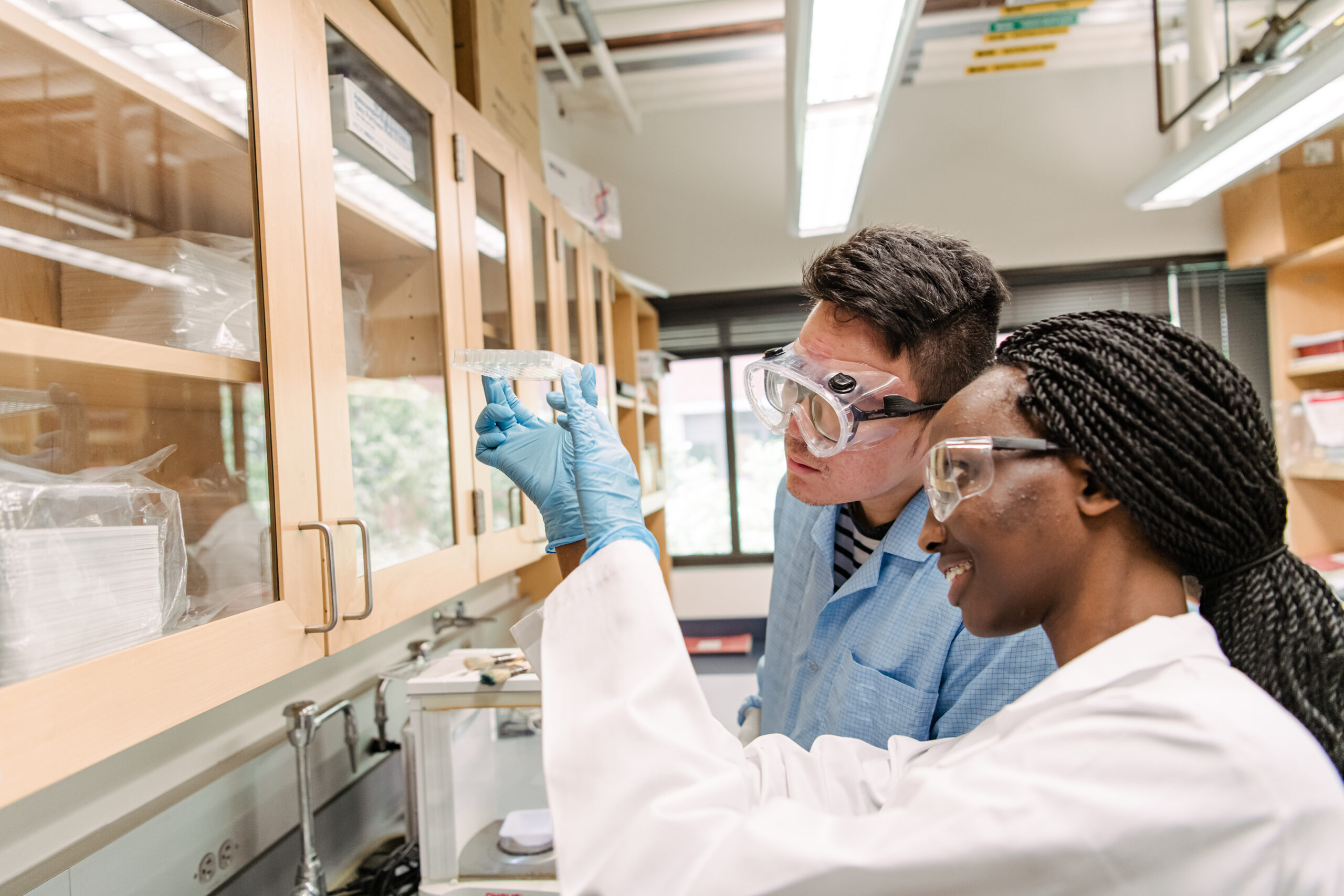Having trouble settling into your major? Wishing you had some useful tips to rely on as you navigate your science classes on campus? We asked five experts in the College of Natural and Mathematical Sciences (CNMS) for their best tips to succeed in majors in CNMS. We took notes, so you don’t have to—here is what they said:
1. Ask for help
A common refrain from these experts is to ask for help earlier than you think you need it. Emma Barnaby, a student success coach in the CNMS advising office, says, “Learn how to ask for help when you need it. Use UMBC resources like the tutoring center and drop-in tutoring BEFORE you think you need them!” William R. LaCourse, dean, adds, “You are not alone. If you are feeling overwhelmed, talk to someone and seek help early. Your well-being is important to us.”
David Eisenmann, the biological sciences undergraduate program director, underscores how many options there are for students looking for assistance: “If you are struggling, do not be shy about taking advantage of all the resources available to you: TAs, office hours, SI PASS leaders, review sessions, tutoring, and CNMS staff!”
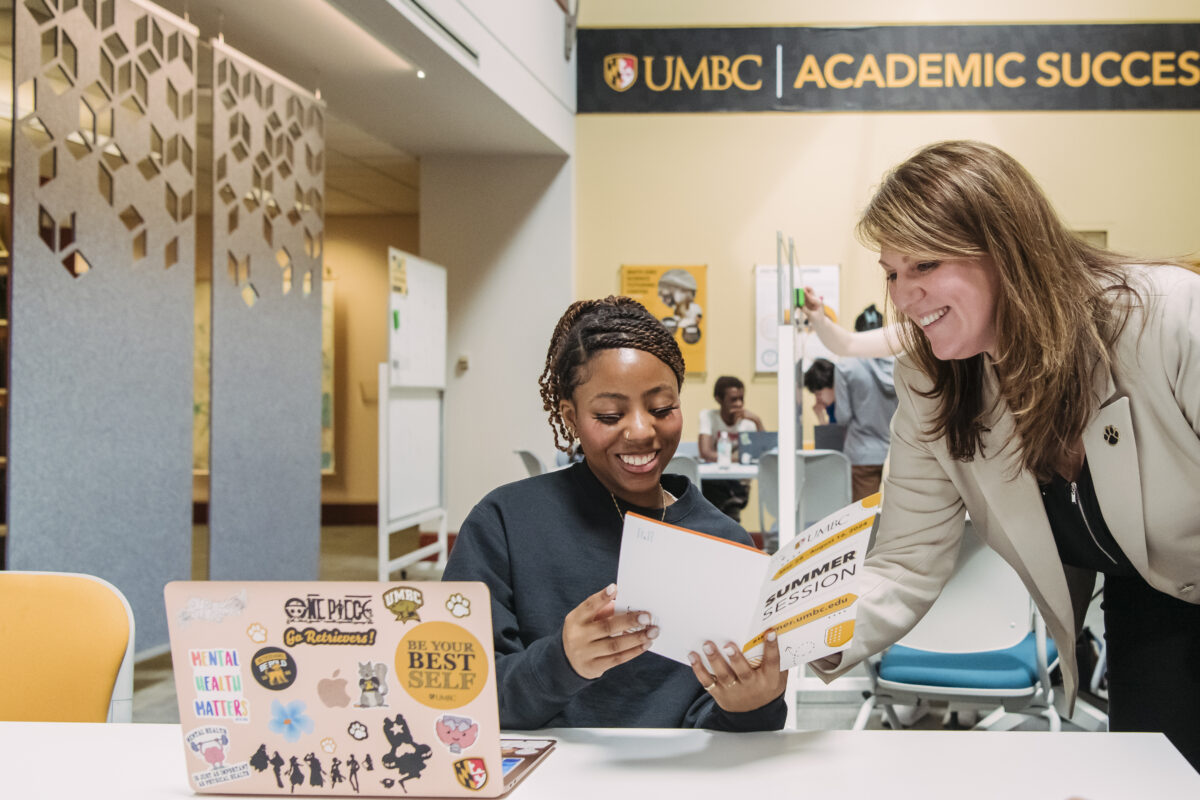
2. Take control
Our experts also encouraged students to take measurable steps and track their progress. For example, “If you want to get good at something, commit to spending 30 minutes a day working on it,” Barnaby says. “Give yourself a phone reminder and cross off that day on a calendar when you’ve completed it—it’s super motivating!”
Eisenmann suggested a few other strategies. “My advice about how to succeed in a STEM course is based on things I have heard from my own students over the years. Students who have succeeded in my courses say they a) do assigned readings ahead of time so they are not clueless walking into lecture, b) take notes during lecture, c) go over their notes afterwards to fill in any areas they were unsure of, and d) work in a study group with other students.”
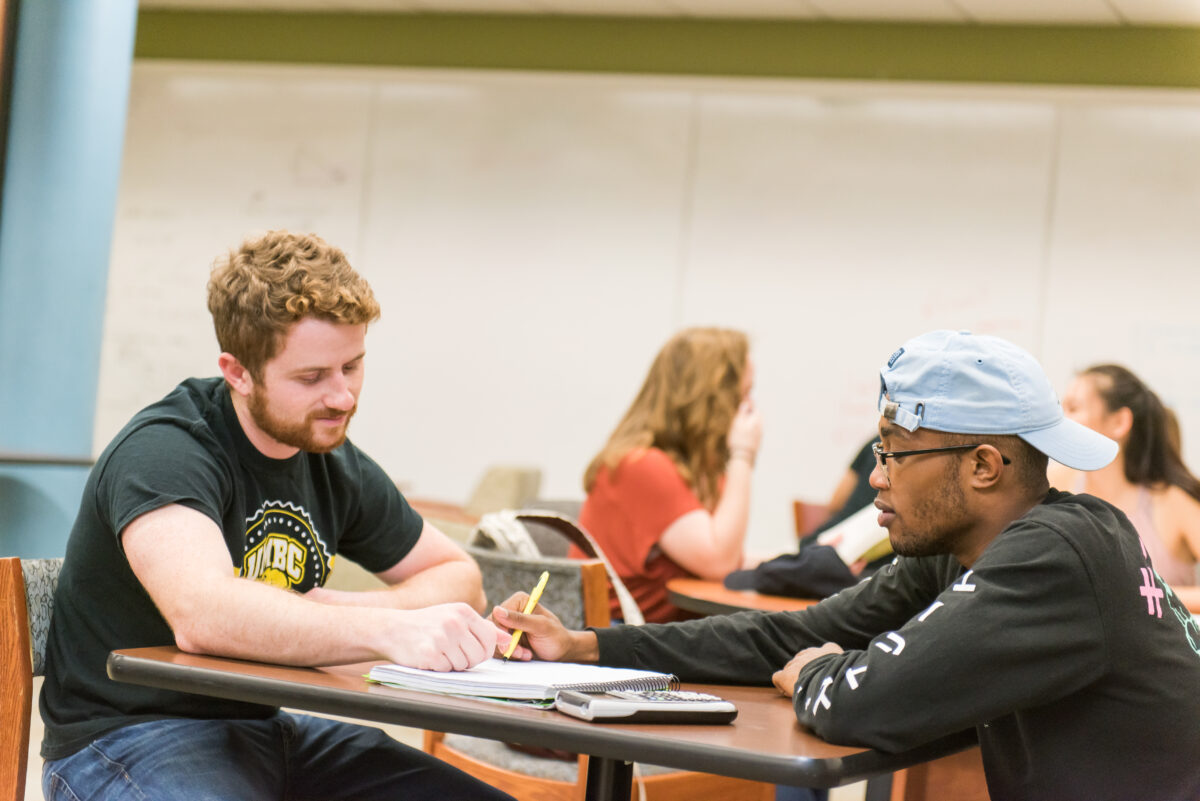
3. Build connections
“FIND YOUR PEOPLE!” That’s how Michelle Bulger, director of the Science and Mathematics Advising Resource Team (SMART), sums up her advice. “One of the best resources a student can create for themselves is to form a group of supportive people who can lift each other up when things are difficult and celebrate together when everything is going great,” she says. “If introducing yourself to your neighbors in the residence halls or your classmates in your courses sounds a little daunting, try joining a student organization for an activity or career that you are passionate about. Knowing that the people you are about to meet have an interest in common with you can make those introductions easier!”
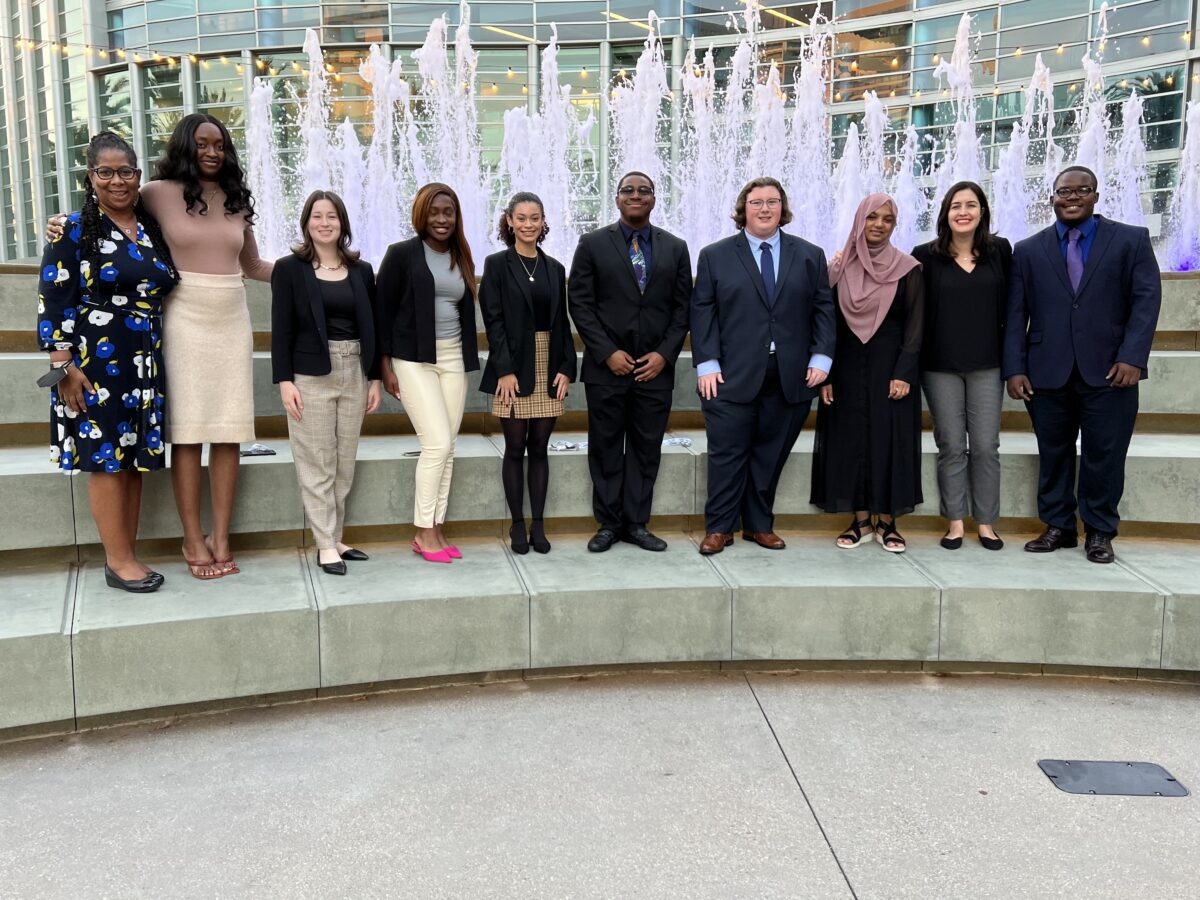
The same principle applies to your interactions with staff and faculty. “Connect with your instructors, teaching assistants, and older students on campus. Stay after class and ask questions that go beyond the class material,” recommends Maria Cambraia, assistant director for research and international affairs. “Share your interests and goals with them. You’ll be surprised to see how much people at UMBC care about you and are willing to help connect you with opportunities related to your interests once they know what you are looking for.”
4. Take the initiative
The experts agree: Go for your gold! “Don’t be afraid to ask for what you want, and be persistent,” Cambraia says. “Many students are so afraid to try something new, when the worst thing that can happen is receiving a ‘no.’ It can be hard to deal with that at first, but a ‘no’ should not stop you. Keep trying; sometimes, you’ll find something much better than your initial plan.” Eisenmann concurs that taking a risk is worth it—it can also help with step number three, above. “Do not be afraid to ask questions in lecture, after lecture, or in office hours,” he says. “Make yourself known to the professor as an engaged student trying to learn.”
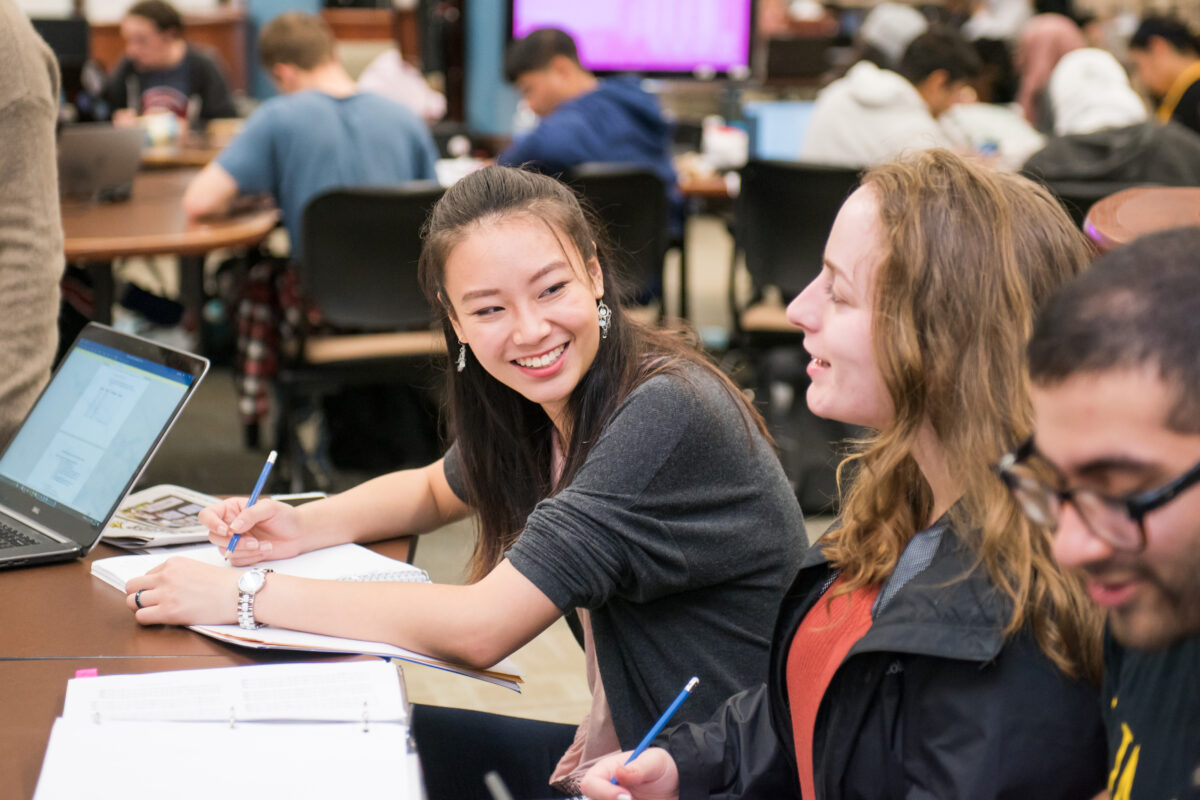
5. Find balance
Creating balance in how you spend your time and energy is key, our experts say. “Do not put all your energy into just classes and exams. You need to develop stronger roots, and part of this is finding your community,” Cambraia shares. “Dedicate time and energy to connecting with friends, family, and mentors. A sense of belonging is crucial for happiness and success. Focus on your classes for sure, but also put your energy on yourself, your mental health, staying healthy, and cultivating your hobbies. Finding an initial balance can be challenging, but you will get there!”
For Dean LaCourse, balance means embracing your uniqueness and also respecting input from people with more experience. “There is no one right way to go to college. Chart your own path and be yourself. Do not let others define you or distract you from your goals and dreams,” he says. “At the same time, it’s important to listen to your advisors and mentors. They have the experience of numerous students to guide you, and the heart to care about you as an individual.”
Learn more about our experts and what they do on campus:

Emma Barnaby, Student Success Coach
Barnaby works with students who are struggling in their STEM courses: She focuses on time management, motivation, and study skills. If you come to her office, she hopes that you leave feeling better than when you arrived!
David Eisenmann, Professor and Undergraduate Program Director (UPD), Biological Sciences
In addition to conducting research here for 25 years, Eisenmann has taught a number of large and small upper-level biology courses. As UPD, he is in charge of making sure the department’s degree programs are rigorous and modern, and that they prepare students for careers and meet their educational goals. Wearing that hat, he also interfaces with the university administration, other departments, and individual students having issues progressing through their major.

Michelle Bulger, Director, Science and Mathematics Advising Resource Team (SMART)
Bulger oversees a group of advisors representing two offices: CNMS Advising/CNMS Student Success (which serves CNMS students) and the Pre-medical and Pre-dental Advising Office (which serves any student who plans to pursue a career in medicine, dentistry, optometry, podiatric medicine, or veterinary medicine). In addition, she works with CNMS departments on class scheduling, with university admissions on recruitment for the college, and on events for the college.
Maria Cambraia, Assistant Director for Research and International Affairs
Cambraia oversees pipeline research training programs, scholarship programs, and science education research initiatives, and she provides support and insight into international affairs within the college. Over the past five years, she’s mentored approximately 100 students on campus, including students in the CNMS Scholars and STEM BUILD programs. Her primary objective is to demonstrate the beauty of science to them and instill confidence in their abilities to become successful undergraduate scientists, allowing them to transition to new research experiences. One of the most rewarding aspects of her role is collaborating with different departments and centers to create more opportunities for UMBC students.
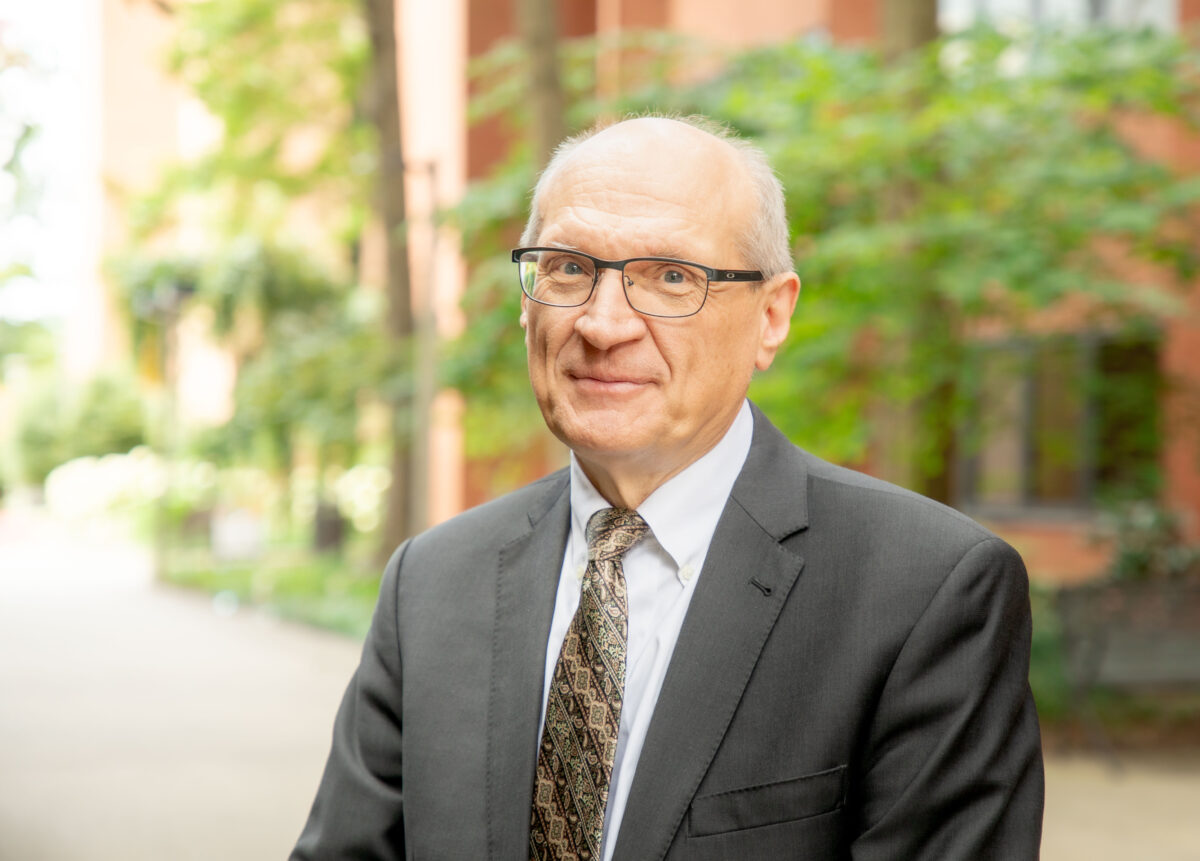
William R. LaCourse, Dean
The dean’s role is to ensure that the departments under the college have the resources to provide students with both a rigorous education and the support needed to be academically successful. The dean’s office and its staff work to help students avoid common mistakes and overcome personal and academic challenges. Dean LaCourse also teaches an introductory chemistry course for non-chemistry majors, where he empowers students by helping them understand how chemistry affects their everyday lives.
Tags: CNMS

